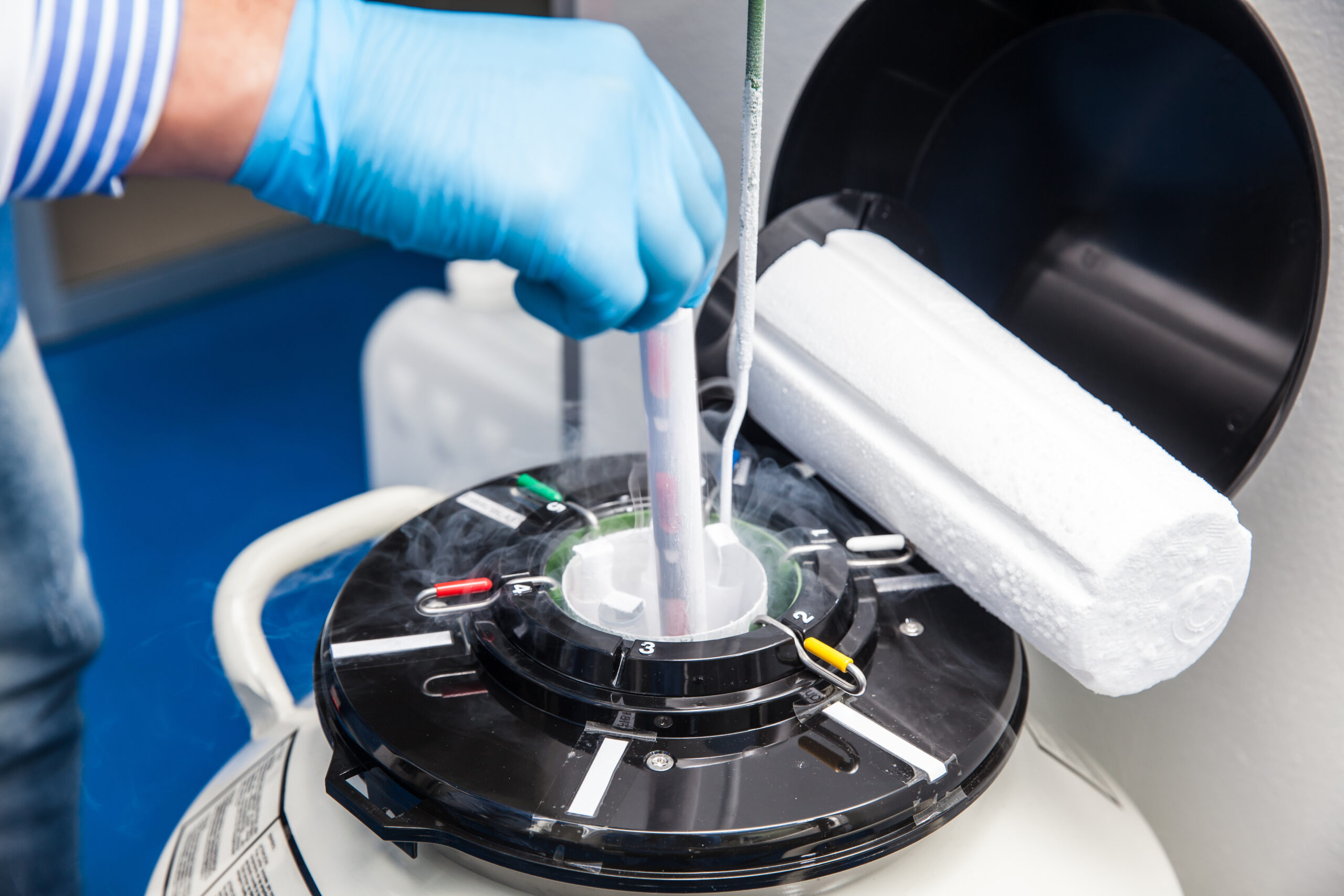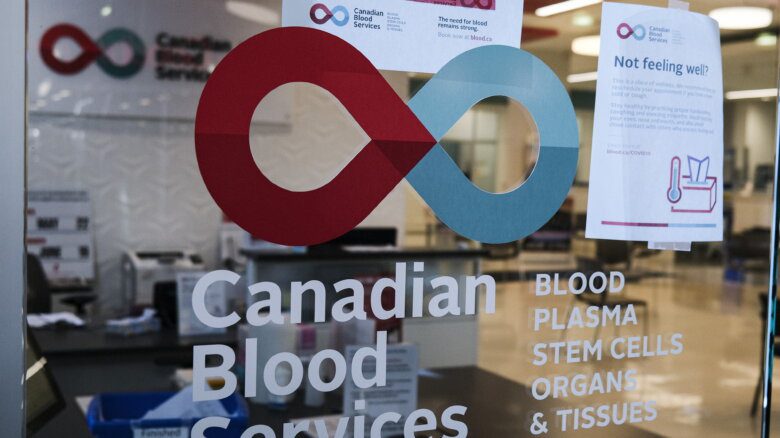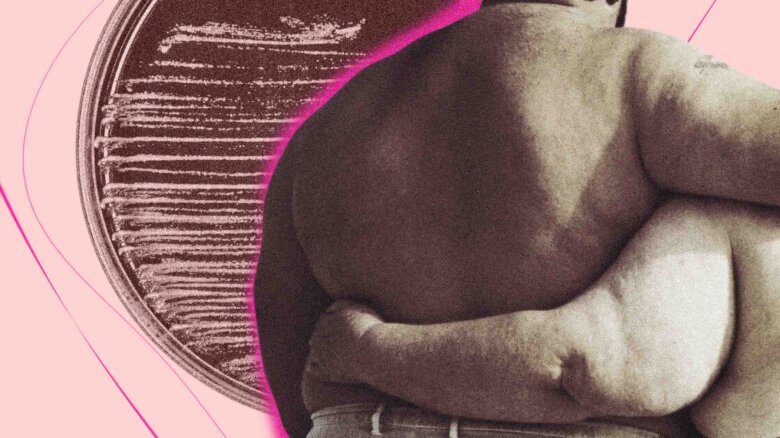The federal government has finally tabled its long-awaited new draft regulations to the Assisted Human Reproduction Act (AHRA), which controls how Canadians can access fertility treatments and services. But while the proposed regulations released last month reduce some obstacles preventing LGBT people from accessing reproductive services, they maintain a six-month deferral period on sperm donations from men who have sex with men. The government is accepting feedback on the proposed regulations until Jan 10, 2019.
“The Government of Canada is taking necessary steps to help Canadians who use reproductive technologies to do so safely, and with peace of mind,” said Health Minister Ginette Petitpas Taylor in a press release accompanying the regulations. “New proposed regulations will help protect the health and safety of women and children across Canada. They will also offer couples dealing with infertility, single people, same-sex couples and other members of the LGBTQ2 community flexibility in building their families.”
Petitpas Taylor didn’t respond to Xtra’s request for comment.
The new regulations eliminate the lifetime ban on sperm donation from men who have sex with men from the current semen regulations, replacing them with new regulations that require donors to refrain from having sex with men for six months prior to donation. In the case of a known sperm donor, the six-month deferral period can be waived after a doctor has notified the recipient of the possible risks of accepting sperm from a man who has sex with men and the recipient consents.
In an email to Xtra, Geoffroy Legault-Thivierge, the communications officer at Health Canada, says the new regulations will give LGBT people more options in starting a family.
“Based on years of engagement with stakeholders, the department understands that many in the LGBTQ2 community who wish to start or build their families hope to do so using a donor they know who happens to be a man who has had sex with another man [MSM]. Currently, MSM donors are indefinitely excluded from donating,” he says.
To address this issue Legault-Thivierge says the department is proposing to introduce a new “directed donation” option, which would give recipients more flexibility to use sperm or ova from a donor they know, even if that donor would otherwise have been ineligible to donate based on the regulations. But the regulations effectively maintain a discriminatory ban on sperm donations from queer men, says the NDP critic for LGBT issues Randall Garrison.
“The proposed changes from a lifetime ban to a six-month deferral period will have no practical impact on donations. We have to move to a science-based system by which any restrictions on donations are based on science and behaviour rather than morals or stigma,” he says. “Like the ban on blood donations by men who have sex with men, this new policy still fails to understand the systematic discrimination it perpetuates.”
Garrison compares the new regulations to the government’s failure to end the discriminatory ban on blood donations from men who have sex with men, as it had promised during the 2015 election.
“This is yet another symbolic action taken by the Liberal government to try to right past wrongs that the LGBTQ2+ community has faced and yet again it misses the mark,” Garrison says.
In addition, women who donate ova must refrain from having sex with a man who has sex with men for 12 months under the new draft regulations. The additional time for the deferral accounts for the fact that all sperm donations must be quarantined for six months after which the donor is re-tested, while ova are not.
Also facing restrictions on donations are people who exchanged money for sex, people who have had sex a person known to have HIV and people who’ve been in prison.
The department defended the men who have sex with men (MSM) donor deferral as necessary to help reduce the risk of transmitting HIV and/or hepatitis B and C, via donor sperm and ova. It relies on research from the Public Health Agency of Canada that shows that the prevalence and incidence of HIV is considerably higher in the MSM population than in the general population.
Although all donors and donations are tested for these and other diseases, the department said that donor screening and deferral remain necessary. The department said it would consider changing the ban as more scientific evidence becomes available, including the ongoing scientific review of the blood donation policy.
According to Legault-Thivierge, Health Canada monitors Canadian and international ongoing donor screening research initiatives, and will update donor screening requirements according to scientific evidence.
The new regulations will also clean up a legal grey area around how surrogates and donors may be compensated.
The AHRA was introduced in 2004 in response to ethical concerns around then-emerging reproductive and genetic technologies. The AHRA legally banned several theoretical practices, such as creating human clones or hybrids, as well as activities that have become commonplace fertility services such as sperm and egg donation and surrogacy. The Supreme Court ruled in 2010 that much of the act was unconstitutional as it stepped into provincial jurisdiction over health, and the offending sections were repealed by the Conservative government in 2012. However, sections of the act that restrict donors and surrogates from being paid for their services remain in force. Now, there are regulations in place specifying what expenses donors and surrogates may be reimbursed for, finally resolving a legal grey area for many prospective families.
The draft regulations specify that reimbursements can only be made for documented expenses directly related to the surrogacy or donation, including counselling and legal services, medical expenses, transportation costs, maternity clothes and compensation for lost work.
Angela Cameron, an associate professor of law at the University of Ottawa, says the new regulations will help relieve some stress for people who rely on surrogates and donors.
“If you’re working with a woman acting as a surrogate, it’s not really clear what the legal list of expenses are you can reimburse her for. This clears it up,” she says. “But if what you’re concerned about is the relationship between the ovum and sperm donor and your family . . . we need both the federal legislation and the provincial legislation.”
Cameron says recent family law changes in Ontario and British Columbia have helped provide legal certainty and flexibility to families using surrogates and donors around who is entitled to be a child’s parent. But other provinces are lagging behind.
In a technical briefing after the regulations were published, Health Canada’s chief medical advisor, Dr Supriya Sharma, said that Health Canada did not consider revising the legislative ban on payments for donors or surrogacy, but may reexamine the issue after future consultations. A bill that would repeal the payment ban was introduced by Liberal MP Anthony Housefather in May, but has not advanced beyond the first session.


 Why you can trust Xtra
Why you can trust Xtra


